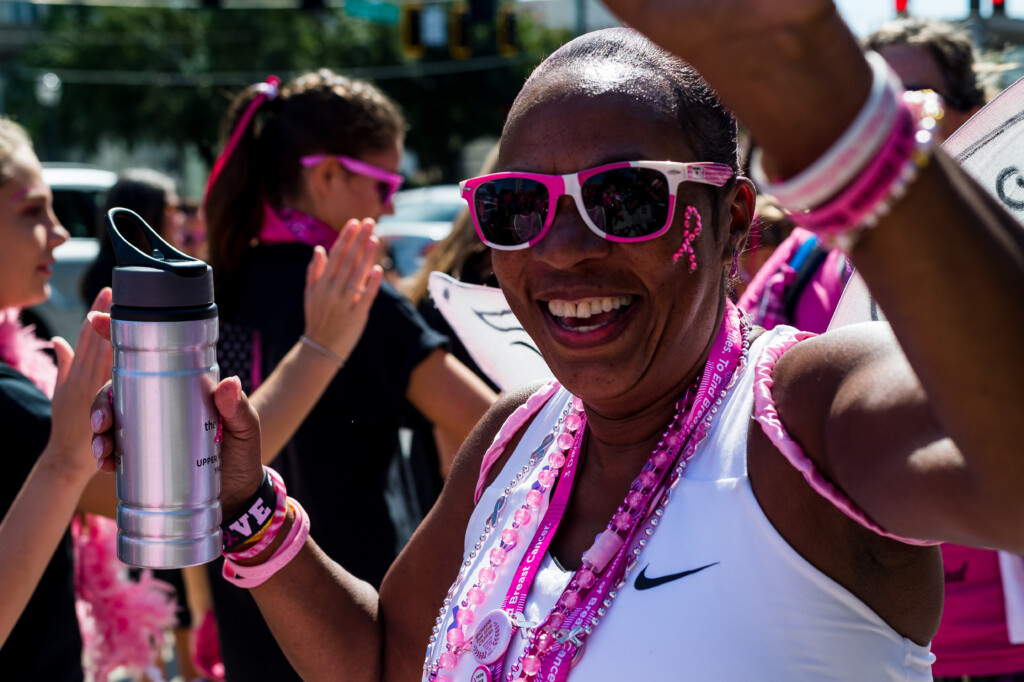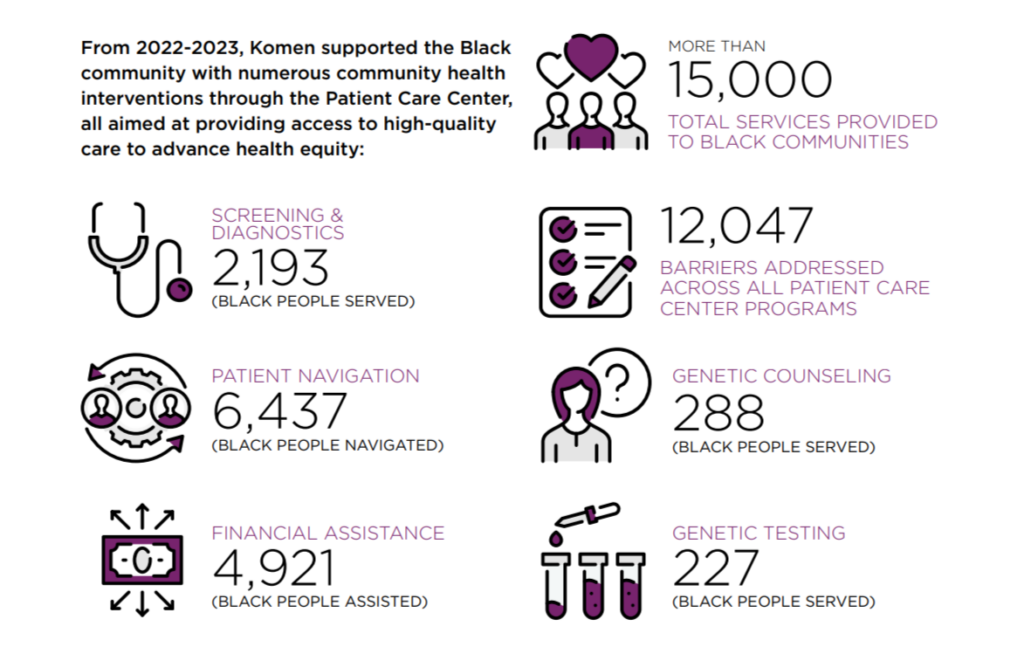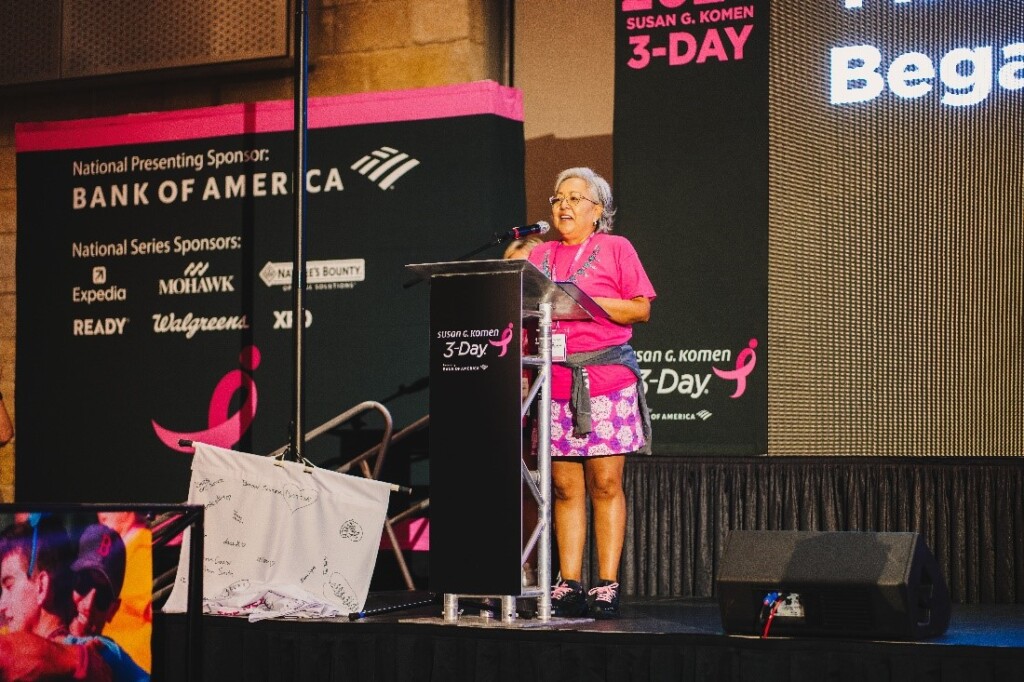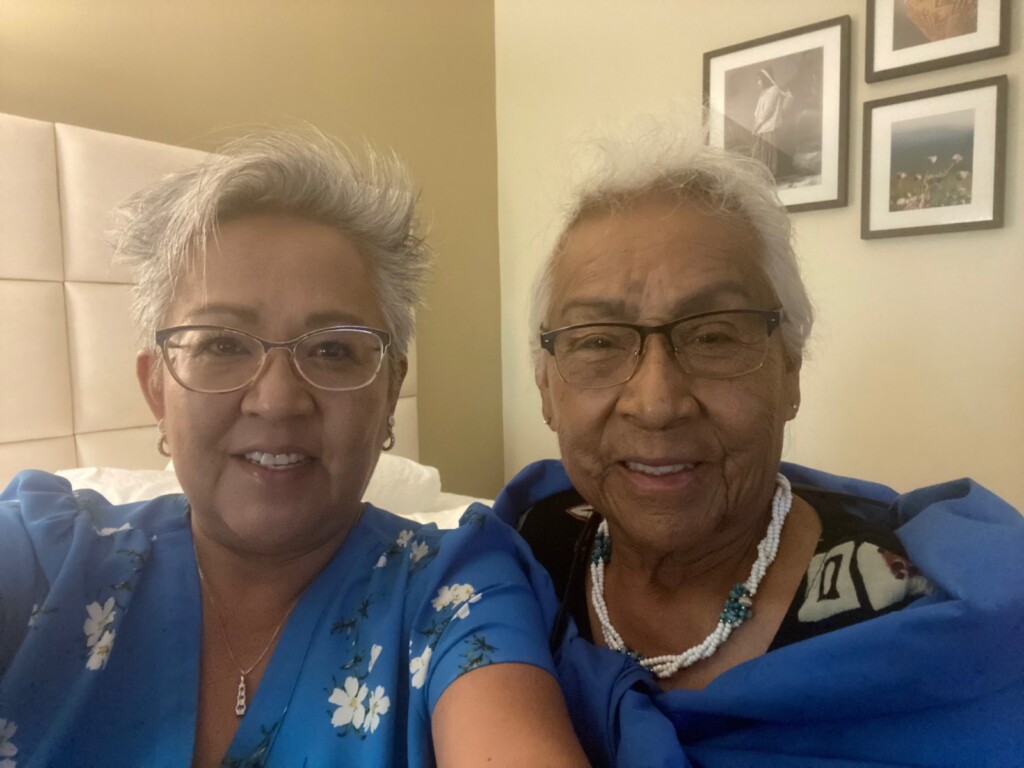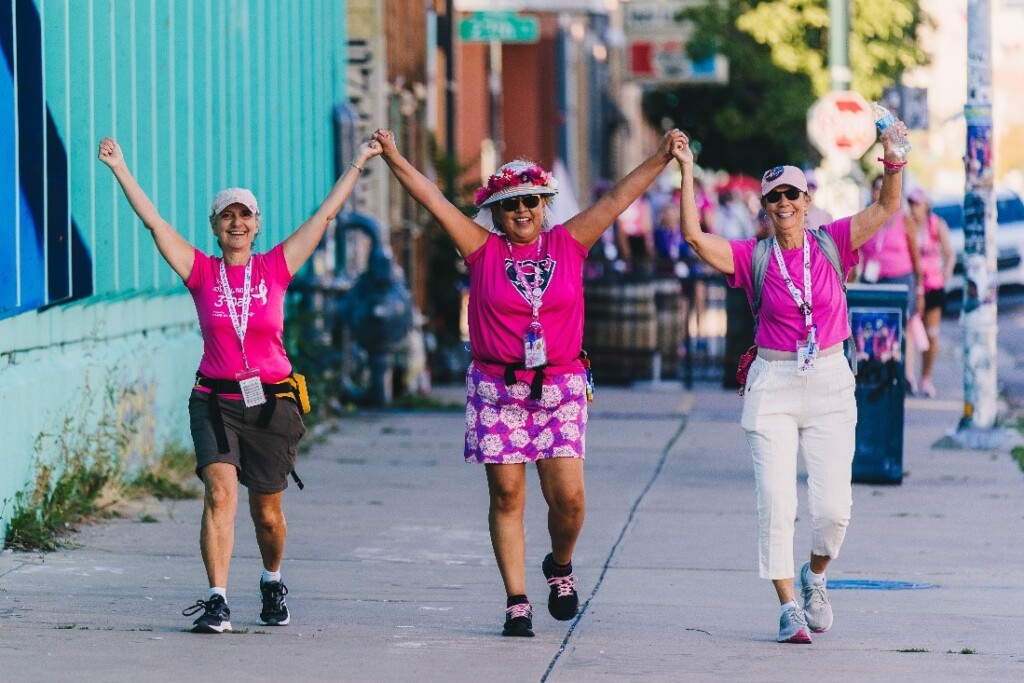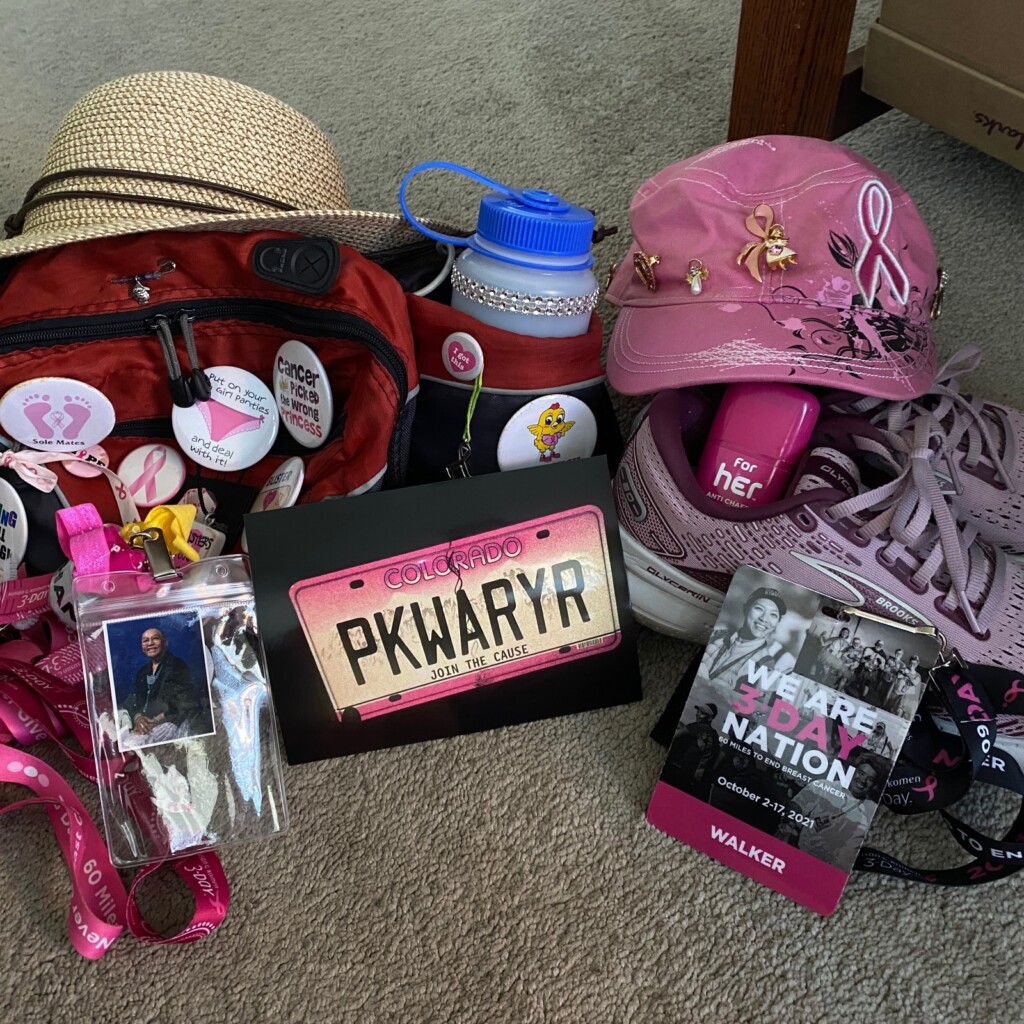Black history is American history. As we celebrate Black History Month, we take the opportunity to look back on the hardships, achievements, and contributions of the African American community throughout our country. Our country’s past shapes the landscape that we are surrounded by today. It is vital to look back so that we may move forward and ultimately progress to become a nation where all are truly treated the same, regardless of the color of their skin.
While equity for the Black community has improved over time, discrimination persists in part due to biases, both implicit and intentional. These assumptions are formed through exposure to stereotypes, social conditioning, and contribute to systemic inequalities and bigotry. America’s record of labeling and prejudice against Black people has contributed to substantial health inequalities amongst community members who identify as Black, Indigenous, or People of Color. Breast cancer does not discriminate, and African American women face unique challenges that amplify the burden of this disease. In fact, Black women are about 40% more likely to die from breast cancer and are more likely to be diagnosed at later stages and with more aggressive types of breast cancer than white women. Additionally, Black women have a lower 5-year relative breast cancer survival rate compared to white women.
These disparities in breast cancer outcomes are not only issues of health; they’re also byproducts of a larger problem of systemic injustices. Members of the Black community are still dying from breast cancer more than other populations due to the unique biology of their breast cancer, combined with inequities in health care that include reduced access to quality care, disproportionately low insurance coverage, poverty and systemic racism. A recent study showed that only 5.7% of physicians were Black individuals, though they constitute nearly 14% of the U.S. population, and diversity in the health care workforce is proven to increase access to health care for communities of color. Racial, ethnic and social injustices create barriers to affordable, life-saving health care, cultural responsiveness in the health care community and so much more.
Ultimately, representation and access to care are amongst the most life-saving measures one can rely on and Susan G. Komen is tackling these disparities head on. To gain a better understanding of the existing barriers that drive these inequities, Komen worked directly with the Black community to launch a multiyear analysis of 10 metropolitan areas that experience the largest gaps in mortality between Black and white women. In 2021, Komen published the results of this analysis in Closing the Breast Cancer Gap: A Roadmap to Save the Lives of Black Women in America. This series of reports found Black women are often ignored by their health care providers and face significant barriers to receiving the care they need due to a legacy of systemic racism, implicit bias and below-standard care.
In response, Komen launched Stand for H.E.R. – a Health Equity Revolution, a program based on this analysis to remove the barriers to high-quality breast health care Black women across the U.S. need. Komen’s comprehensive approach through Stand for H.E.R. includes five key health equity drivers to create change:
- Education that equips specific groups and communities with knowledge about breast health
- Patient support that ensures connections to timely, high-quality care
- Workforce development that improves diversity and cultural sensitivity of health care workers
- Public policy and advocacy that promote health equity
- Research that is representative and benefits all
By leveraging this approach through Stand for H.E.R., Komen is committed to collaborating with Black communities, policymakers, researchers and other key allies to help create a world without inequities, where Black people have the same chances of surviving breast cancer as anyone else. The funds you raise at the Komen 3-Day help make this possible.
As we commemorate Black History Month, let us not only celebrate achievements but also acknowledge the ongoing struggles faced by many, particularly in the realm of healthcare. The fight against breast cancer demands a collective effort to eliminate disparities and promote equal access to resources. Susan G. Komen’s commitment to education, outreach, and cultural sensitivity serves as a beacon of hope in the quest for a future where every individual, regardless of their background, can face breast cancer with the support and resources they deserve. Together, let us bridge the gap and make breast cancer a thing of the past ? for everyone.
For more information about Komen’s commitment to achieving health equity, visit our Health Equity homepage, and discover how to become a Policy Advocate, an Advocate in Science, or register for Navigation Nation. To learn more about the support available, visit the Patient Care Center, explore our Financial Assistance Program, or contact our Breast Care Helpline.
